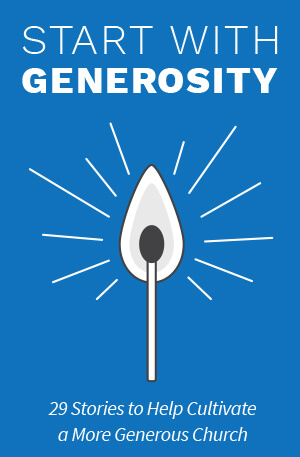
For Christians, stewardship is about recognizing where our resources come from and what we should do with them. Understanding—and practicing—good stewardship is a crucial part of becoming mature followers of Jesus. It helps us develop a more complete picture of our relationship to God and prioritize our finances, values, and lives around the things that matter most. Fortunately we can find many examples of stewardship in the Bible.
If we look at biblical examples of stewardship and passages that describe our role as disciples and stewards, it becomes clear that we’re encouraged to use and think about God’s resources differently than the rest of the world does. But if we don’t live out biblical stewardship, we wind up wasting opportunities to glorify God and advance his kingdom on Earth.
In this article we’re going to cover things you need to know about biblical stewardship, including:
Let’s start with a definition.

What is biblical stewardship?
Steward is an ancient job title. It describes a person who takes care of or manages something for someone else.
Today there are a wide range of professions, roles, and situations that could be described as stewards or fall under stewardship. You’ve probably heard someone refer to their flight attendant, who is hired by an airline to take care of its passengers, as a stewardess. Financial advisors are stewards of whatever assets you put them in charge of. When you house sit for someone, you’re stewarding their house. If someone asks you to watch their things while they go to the bathroom, that makes you a steward for the next few minutes.
Anytime you’re responsible for something that belongs to someone else, that’s stewardship.
The Bible doesn’t explicitly say, “You are a steward of God’s resources,” but this title has always been the way Christians understand our relationship to God and our possessions because the Bible makes it clear that:
- Everything belongs to God
- He entrusts some things to us
- We have a responsibility to manage them wisely on his behalf
Biblical stewardship challenges us to recognize that God is the true owner of everything and that he expects us to manage his resources in a certain way.
Let’s unpack each of these points.
EVERYTHING BELONGS TO GOD
The Bible makes it abundantly clear that as the creator of everything, God owns everything.
“Who has a claim against me that I must pay?
Everything under heaven belongs to me.” —Job 41:11 (emphasis added)
Even we belong to him:
“The earth is the Lord’s, and everything in it,
the world, and all who live in it.” —Psalm 24:1
Right now you’re probably surrounded by things that were made with human hands. You might be reading this on a device that you paid for. But for millennia, God’s people have believed that the things we make aren’t really ours. The things we buy aren’t really ours. They’re God’s. They were made with his materials using hands he made, and they were purchased with his resources—which he allows us to have and use.
HE ENTRUSTS SOME THINGS TO US
Since God owns everything, all that we have comes from him. Not just our resources either. Wealth, riches, honor, strength, power, and authority belong to him too.
“Wealth and honor come from you;
you are the ruler of all things.
In your hands are strength and power
to exalt and give strength to all.” —1 Chronicles 29:12
This is one of the most challenging aspects of biblical stewardship that Christians have to grasp. There are times when we feel we’ve earned something by our own merit or effort, but even then, God is the one who deserves the credit and has true ownership.
GOD CARES HOW YOU USE WHAT HE GIVES YOU
When something doesn’t belong to you, that should lead you to use it more carefully. But stewardship goes beyond simply “borrowing” things from God. He’s not just loaning us money and other resources. He’s entrusting them to us.
While they’re in our possession, we have the choice to use God’s resources however we want. We can invest them all in ourselves and use them on things that only matter to us. But God is trusting us to do much more than that. As stewards, our challenge is to use God’s resources in ways that advance his interests. We need to invest them in kingdom causes and use them to provide for the needs of others.
The Bible is full of passages instructing us to use our resources to care for the poor and those who are in need (1 John 3:17–18, Proverbs 28:27, 1 Timothy 5:8).
Stewardship isn’t about “giving back” to God. It’s about using what he’s given us to accomplish something that matters.






